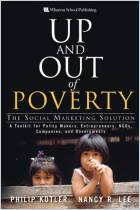
Recommendation
The days of corporate irresponsibility are past. The public now expects companies to behave according to a higher social standard. And guess what - operating a business built on socially responsible principles pays off. Decision makers at companies large and small are learning that when they build their businesses according to the dictates of social conscience, they reap rewards such as increased profits, an improved corporate image and happier employees. And, they sleep better at night. Author and marketing expert Philip Kotler and social marketing consultant Nancy Lee describe six ways you can develop and implement a corporate social program. They clearly explain and analyze each initiative in its own chapter, including illustrative examples of successful campaigns from leading companies such as Ben & Jerry’s, The Body Shop and American Express. Their methods do overlap and they are, at times, redundant. Yet the points are important enough to bear repeating. getAbstract.com thinks every professional whose company is engaged in corporate social marketing - or needs to be - will find a treasure trove of applicable information in this book.
Summary
About the Authors
Philip Kotler is professor of international marketing at the Kellogg School of Management at Northwestern University. His books include the authoritative Marketing Management. He also has written more than 100 business journal articles. Nancy Lee is an adjunct professor at the University of Washington and Seattle University, and heads a firm specializing in marketing for public agencies and nonprofit organizations.


































Comment on this summary or Start Discussion